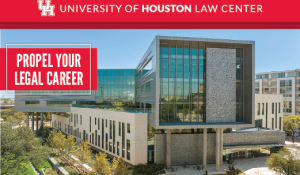Amita:
Thank you for your reply.
You're correct in saying "The harsh reality is that LLM degrees do not get the same respect as JD degrees in the US" thats bad enough for LLM students, but we're talking about foreign LLM students with no US work experience ... which is even worse.
My research indicates it is infact impossible for a foreign LLM student to find an employer (big or small law firm) to sponsor an H1B. A foreign student requires a work permit like an H1B or L1 (if already employed in a different country) to work in the USA de facto.
There is no way you can work in the US in a big law firm or a small law firm or even in a shop as a sales assistant for that matter without a work permit (H1B being the most common one)
Small law firms do not have the resources neither the time to recruit & sponsor an H1B, large law firms who have the resources will not as you yourself have just said, so I dont understand what you mean by saying "However, if you can set your sights lower and go to a region in the US where foreign LLM students are more rare, you can have a successful transition to a legal career in the United States"
So to recap
1) Large law firms will not hire a foreign LLM with no US work ex as you yourself have correctly said.
2) Small law firms do not have the resources to sponsor (head over to H1B database for proof) an H1B, and an "alien" requires an H1B,
3) None of the Indians in this thread since its inception in 2012 has been able to find a job (big or small) and stay on or they would have mentioned it as they're all reading (I'm sure Shivani is)
The only person who was forth coming & told us the reality of the situation is Jitana, the rest just kept quiet most likely because they couldn't find work in the US & stay on.
I guess the universities know this but they just keep shut as they get a lot of money from foreign students.
Sorry if this seems harsh but for someone like me who is not wealthy (need a large loan) or well connected it would be foolhardy to spend borrow a large amount of money & head to USA on the hope of getting a job after graduation so I have to do my research no matter what you or Harvard says.
Hello.
First of all thank you so much for those inspiring words at the point where I was about to loose my hopes of studying LLM form US.
I as well dont belong to wealthy family and I'll have to drag loan for my studies. I wish to stay back and work for some years. I went through messages here and I was so shaken. But your words gave me some hopes and I would try for next year.
To be clear, i am not Harvard, nor am I advocating you take out a loan and/or pursue an LL.M. in the U.S. I apologize if you thought that was my intent. I am speaking more to those that have already made that decision about the best way to proceed... particularly those that have already started or completed their LL.M. studies in the U.S..
Here are some of the guidelines I give my students if they plan to stay:
1. Start your job search by building your network from Day One of your studies (if not sooner)
I start working on placing my students the day they start the program. Getting a position in the current US job market is all about building an effective network so my first responsibility to expose them to as many prominent members of the legal community as possible both locally and in DC. I have learned that if I can get my students in the same room as potential employers, they can do the rest. For example, one of the six students in my intro program this summer has already been offered a clerkship by one of our state supreme court justices for next year and in prior summers I have had students offered positions in our state attorney general's office and one even got an on the spot offer from one of the largest firms in the world the day we visited them... (the only thing more surprising than the offer was that she turned it down... she wanted to return to her country, which she did.)
You all have the same three goals: Graduate, Pass the Bar, Get a Job. Do not make the mistake of thinking of these goals as sequential.
One final tip on network building: Have business cards the day you arrive in the US that contain your name and email. The power of the business card is that if you offer one to someone, they feel the need to offer you one of theirs. Within 24 hours of getting a business card, send a handwritten note to the person commenting on how nice is was to meet them and ask a question that will keep your conversation going.
2. Its not how you start, but how you end. Don't be afraid of the intro position. Do whatever you can to get in the door... even if it means working for free for a while. I have had multiple foreign students accept OPT paralegal positions at firms that then converted into associate positions. In fact, I have had only one that started as a paralegal at a firm that did not become an associate at that firm... so she left for a different firm and is now very successful.
3. Learn the local culture and excel at it. Here in the South, handwritten notes of thanks after a meeting and a thoughtful gift on the next holiday build powerful allies on your road to success.
4. Build a market. There is only one reason US firms hire associates in the modern legal market. No, it is not because you are bright, work hard, and do excellent work. All the applicants share most if not all three traits. Firms hire associates because they believe that eventually you will bring in new business to that firm. This is where foreign students start with a disadvantage... they do not have the social networks (family, church, university, country club...) in place that can eventually be leveraged into getting new business to the firm. In my first class I had a Chinese girl that had never left China before showing up at my school. We talked about building a market and she attacked that problem aggressively. She sought out under-served immigrants and helped them find the right local firm for their specific legal needs. By the end of her year here, she had three firms competing to sponsor her and hire her as an associate. She turned them all down, married an American classmate and the two of them started their own firm instead in Iowa of all places... and in their third year they interviewed two of my alumni with the plan to sponsor one of them for H1B.
5. Ask advice all the time, and then find a way to show that you followed it. (e.g. Ask which types of courses to take and then find a way to spin your eventual choice as a product of their advice). Many if not most American lawyers are arrogant know-it-alls that love to be right. If they tell you the 'key to success' and you follow it, they become emotionally tied to your success.
Asking for career advice in a non-hiring setting is much less stressful for both of you. Many students make the mistake of only talking to potential employers and only talking to them once they are looking for a job. That means that all your contact with the individual is in a stressful, almost confrontational setting. Build the mentor-mentee or friendship relationship first and foremost.
6. Go beyond your school. The first place most students look for advice/guidance/assistance if from their favorite professor or the school placement office. Both are useful, but remember that hundreds of others are getting the same leads/tips/advice if you are at a larger program. Find a way to expand your network beyond the school. Dress professionally and go to every social function or reception that you can. Hand out lots of cards and follow up
7. Commit to the plan. "I'll try and see how it goes" does not cut it. All your heart and effort have to be there in order to succeed at this. If every day you are still thinking about giving up and going home, that future become unavoidable.
To be up front, I have only had one Indian student complete my program so far and he just graduated and is in his OPT, so I cannot speak intelligently about the specific struggles of Indian students. That said, we have been incredibly fortunate in placing our LL.M. alumni that have decided to stay in the United States. The quality of our students has been our greatest selling point. For example, I had one firm hire one of our L.L.M. alumni two years ago, and based on the quality of her work, they have since hired two more (of the three, they only had to H1B sponsor one, however... one married an American and the other was granted asylum).
This is not a fairy tale, so i cannot state that 100% of my foreign LL.M.s have been able to find positions, but after our first five years as a program, we are running at 80% employment at nine months after graduation, and 100% employment for all those that passed the bar (I am also proud of our over 75% bar passage rate for foreign LL.Ms). However, take these numbers with a grain of salt. I keep my program very small (normally under ten students) so it is much easier for me to help place the 2 or 3 foreign students that want to stay in the US each year. Other directors that have classes of 200 or so have a much more difficult task than I do. I also think I benefit from being in a region where foreign educated lawyers are rare.
I hope this helps
One sidenote First, small firms do sponsor H1B associates and the H1B database supports this. You will even see sole practitioner firms sponsor an H1B associate. (The database is poorly constructed, so be careful not to just search for "attorney" but the plethora of other words and phrases other terms used to describe positions, such as 'lawyer'.)



